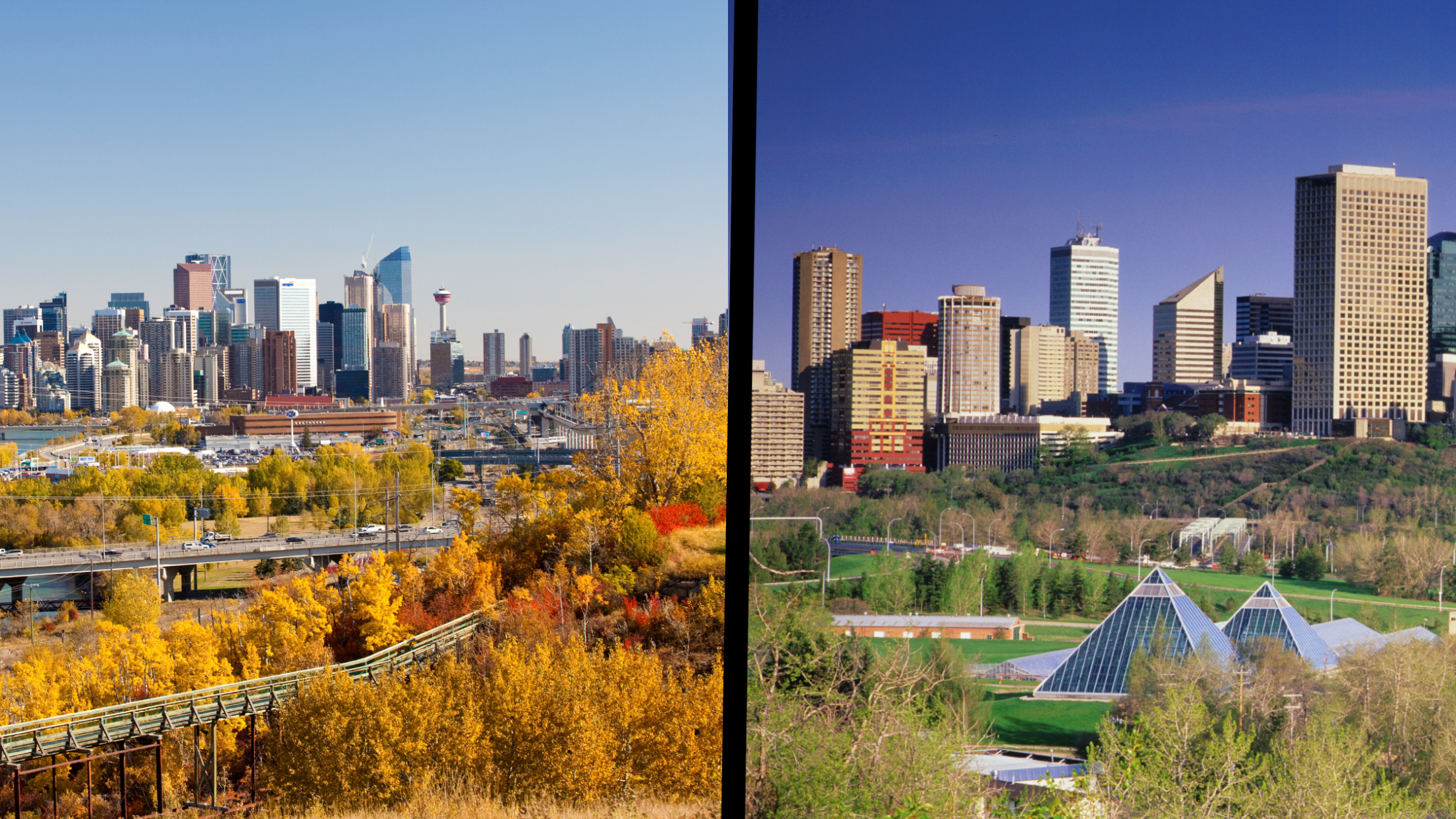A Seamless Move from Ontario to Alberta with Expert Guidance
Thinking about making the move from Ontario to Alberta? You’re not alone. Many Ontarians are choosing to relocate to Calgary and other Alberta cities for more affordable housing, a lower cost of living, and an overall better quality of life. However, moving between provinces can be complex, especially when it comes to selling your current home, financing your new one, and navigating the differences between the two markets.
That’s where RE/MAX Wealth Builders comes in. Our team operates seamlessly across both Ontario and Alberta, ensuring a smooth and stress-free transition for buyers looking to relocate. We’re one team over two provinces, with experts on the ground in both regions to help you with every step—from selling your Ontario home to purchasing the perfect property in Calgary.
1. A Coordinated Approach Between Two Provinces
One of the biggest challenges of relocating is timing your sale and purchase correctly. Our team understands this, and we work together across provinces to ensure you’re never left in a difficult situation.
✔️ Need to sell your Ontario property first? We’ll handle the sale to maximize its value while simultaneously working with our Calgary team to secure your next home.
✔️ Want to buy in Calgary before selling in Ontario? We’ll help you explore financing options, including refinancing your Ontario home to retain it as an investment property while securing your new Calgary home.
✔️ Worried about being stuck between homes? We ensure a seamless transition, so you’re never left without a place to live.
"You're not in a situation where you could essentially be homeless because you sell your Ontario property and then don't know what to look for in Calgary, or vice versa." – Alex J. Wilson
With a team working on both ends of the transaction, we take the stress out of the relocation process and ensure a smooth and efficient move.
2. Expert Guidance for Out-of-Province Buyers
Relocating isn’t just about buying a home—it’s about understanding an entirely different real estate market. That’s why our Calgary team provides:
🔹 Personalized Property Searches – We don’t just show you listings. We take the time to understand your lifestyle and goals, ensuring you find the right neighborhood that fits your needs.
🔹 Investment Insights – Not all areas are the same. We provide real insights into Calgary’s housing market, including which areas are ideal for living and which are better for investment.
🔹 Virtual & In-Person Showings – We offer remote property tours so you can explore homes from Ontario before making the trip out to Calgary.
🔹 Neighborhood Expertise – “You don’t know what you don’t know,” as Jeffrey Chen put it. We ensure you understand the differences between communities—beyond what Google can tell you—so you make the best decision for your lifestyle.
🔹 Access to Local Experts – We have trusted lawyers, mortgage brokers, contractors, and property managers in Alberta to assist you every step of the way.
3. Selling Your Ontario Home & Buying in Calgary—All at Once
If you need to sell in Ontario to fund your Calgary purchase, our team makes it easy.
✔️ Comprehensive Listing Service – We analyze your Ontario home’s value, stage it for sale, and market it to attract top dollar.
✔️ White-Glove Service – We handle everything—from market analysis to negotiations—so you don’t have to worry.
✔️ Coordinated Move to Calgary – While our Ontario team sells your home, our Calgary team secures your next property, ensuring a seamless transition.
"We’ve done this thousands of times. We know the process inside and out, and we’re here to make it stress-free for you." – Alex J. Wilson
4. Keep Your Ontario Property & Still Buy in Calgary
Many of our clients don’t need to sell their Ontario home to move to Calgary. Instead, we help them turn it into an investment property by:
📊 Running the Numbers – We analyze your property’s rental potential and financing options.
🏡 Refinancing Solutions – We explore refinancing your Ontario home to unlock capital for your Calgary purchase while keeping your Ontario property as a long-term investment.
💰 Building Long-Term Wealth – Why sell when you can own two properties? With Alberta’s affordable market, many clients retain their Ontario home as a rental while buying in Calgary.
5. Full Relocation Support – More Than Just Buying a Home
Moving to a new province comes with a lot of unknowns, but our team makes the transition easy. We assist with:
✔️ Utilities & Local Services – Setting up electricity, internet, and essential services in Alberta.
✔️ Movers & Logistics – Connecting you with reliable moving companies to simplify your transition.
✔️ School & Childcare Recommendations – Helping families find the best options for their children.
✔️ Legal & Mortgage Support – Our network of Alberta-based professionals ensures your home purchase goes smoothly.
"We really try to set you up with people that make sense for you, creating a team and experience that makes it smooth and stress-free." – Kripa Patel
6. Investment Opportunities Beyond Just a Move
If you’re relocating for financial reasons, Calgary’s real estate market offers strong investment potential.
💵 Lower home prices & no land transfer tax – More affordability compared to Ontario.
📈 Strong appreciation in key areas – East Calgary, for example, has seen price increases of nearly 20%.
🏠 Opportunities in pre-construction – Secure a brand-new home at today’s prices before values rise.
7. Your Personal Calgary & Ontario Real Estate Team
Unlike other brokerages that simply sell homes in multiple provinces, RE/MAX Wealth Builders is truly one team across two provinces.
🏙️ Toronto & GTA – Jeffrey Chen & Alex J. Wilson provide full-service selling and financing strategies.
🏡 Calgary & Alberta – Kripa Patel specializes in personalized relocation assistance and local market expertise.
Most teams only sell in Alberta—we live and invest in both provinces. Our deep, hands-on experience ensures a smooth transition for you, whether you’re moving permanently, investing, or keeping both properties.
Make Your Move to Alberta with Confidence
Thinking about relocating to Calgary? Whether you’re selling your Ontario home, keeping it as an investment, or simply looking for expert advice, our team is here to make your move easy and profitable.
📞 Contact us today to start planning your seamless move to Alberta!
🚀 Your new home—and your financial freedom—await.
This version fully integrates insights from the webinar, showcasing your seamless team approach across two provinces while emphasizing your expertise in both buying and selling across Ontario and Alberta. Let me know if you'd like any refinements! 🚀












